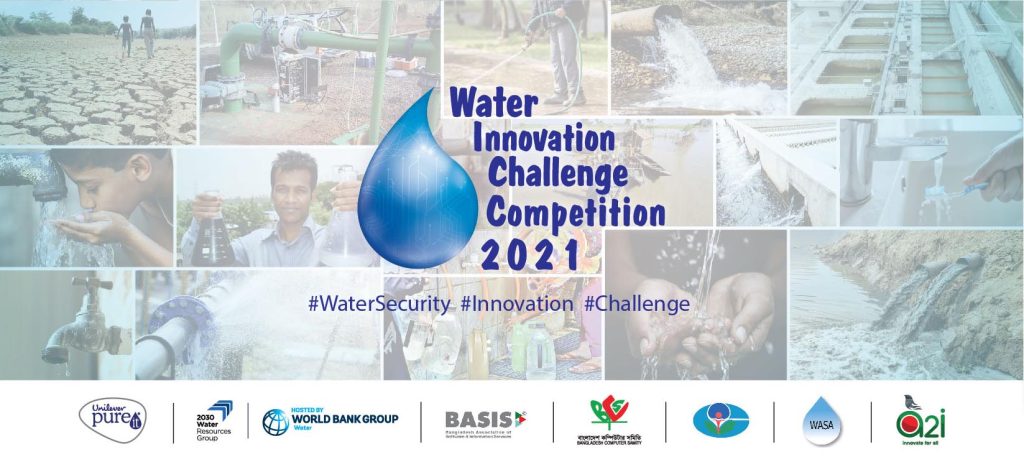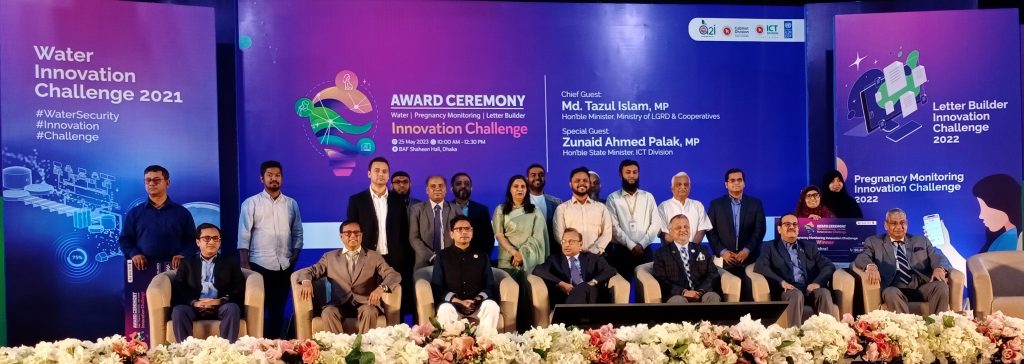Water Innovation Challenge Competition in Bangladesh

The award ceremony for the 1st Water Innovation Challenge Competition was held in Dhaka in May 2023. The Chief Guest, Md. Tazul Islam MP, Honorable Minister of LGRD & Cooperatives, and the Special Guest, Mr. Zunayed Ahmed Palak, Honorable State Minister of the ICT Division, were present to announce the results. A total of 200 submissions were registered for the two problem statements related to determining the water footprints of the urban and industry sectors. After several stages of scrutiny, four proposals were shortlisted for the next phase of prototype development and piloting. Currently, the Dhaka Water Supply & Sewerage Authority (DWASA) and the Department of Environment (DoE) are providing support to the winners in scaling up their prototypes.

The Water Innovation Workstream (WIWS) of the Bangladesh Water Multistakeholder Partnership (BWMSP) launched the Water Innovation Challenge Competition in 2021 with the goal of crowdsourcing innovations in water use monitoring and footprint accounting in Bangladesh.
WIWS collaborated with the 2030 Water Resources Group (WRG), A2i, Unilever Bangladesh, Dhaka WASA, the Department of Environment (DoE), the Bangladesh Association of Software and Information Services (BASIS), and the Bangladesh Computer Society (BCS) to identify two specific use-cases as problem statements for the challenge competition:
- Household Water Footprint through Citizens’ Access Tool
- Industry Water Footprint through Industry Water Accounting
The primary objective of the challenge competition is to encourage young innovators to develop solutions for water-saving, reuse, and recycling methods. It also aims to raise awareness among citizens about the impact their consumption has on the quality and quantity of water. Additionally, the reliable data volume from the Water Meter solution can be used for various applications through data analytics and data science. The structured data volume generated will also allow the government to make informed investment decisions for fresh water and recycled water infrastructure.
The absence of appropriate water usage monitoring tools and platforms is a barrier for citizens and industries to participate in water-saving methods. Countries around the world are increasingly using ICT-based solutions to develop and deploy monitoring tools and platforms in a cost-effective manner. 2030 WRG is committed to taking forward The Water Innovation Challenge to provide an enabling environment to identify and support new solutions.
